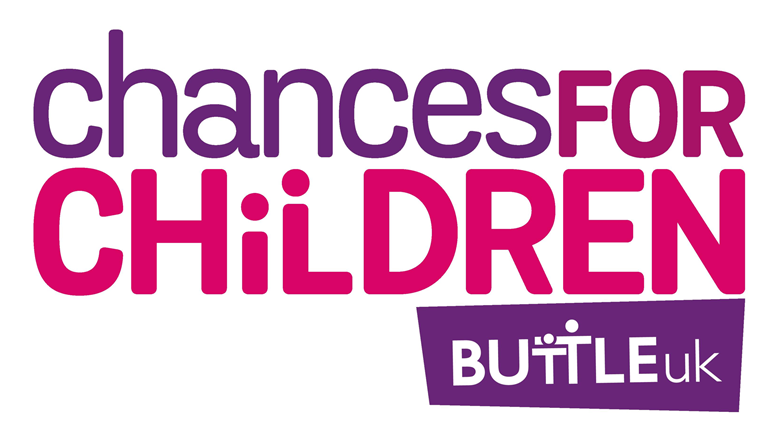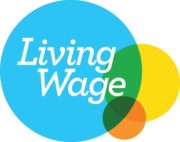Over 80,000 children are experiencing extreme poverty as soaring costs and lack of support leave families struggling to make ends meet
"I worked with a nursery-aged child who was hospitalised due to malnourishment, which caused a heart condition, and all of her teeth required to be removed" – a frontline worker describes the devastating long-term consequences of living in poverty in new report
Date: 18th March 2025: A new report has uncovered the horrific experiences of thousands of families as frontline workers say they’re seeing some of the worst poverty conditions they’ve ever come across.
The State of Poverty report for Buttle UK heard from over 1,000 frontline professionals working with approximately 150,000 children whose families struggle with living costs and need support.
Buttle UK is calling on the Government to urgently introduce an England-wide Poverty strategy as the report shows the gap between conditions and support is increasing. It is also supporting a number of initiatives already being led by other organisations to help ease the pressure on families.
The report found that 58% of the children (more than 85,000) that professionals are working with are living in destitution. This means poverty conditions are so extreme that they are forced to endure appalling standards of living*. This has increased by 22% compared to 2021.
The report also found that many are struggling with even the most basic costs. This includes:
- 53% of families are unable to afford enough food and basic nutrition
- 55% cannot afford basic utilities
- Close to half of all families say they cannot afford their rent or mortgage
- 59% of families were reported as unable to afford basic furniture, or 28% of families could not afford beds for their children.
- 50% cannot afford children’s clothes or toys, while 47% cannot afford to clean their clothes or their homes.
- 48% are not able to afford their rent or equivalent
- 64% go without IT equipment for education or employment
Frontline workers spoke of the pressure being the worst they had ever seen. One commented, “There is a sense of hopelessness. As a social worker, I often feel that there’s nothing that I could do that would make the necessary difference.” Another said, “In the 43 years I have worked in this service, I have never experienced the level of child poverty we are seeing today in one of the so-called richest countries in the world. And for some children and young people, they can see no way out of this trap.“
Joseph Howes, CEO of Buttle UK, comments, “The details in this report are heartbreaking. No child should be forced to live in these conditions, and it is having devastating long-term consequences for both their physical and mental health. We have gathered overwhelming evidence of the extreme challenges families are forced to endure and the impact this is having on the services of frontline workers. They speak of the almost complete breakdown of support services for families – funding is either not available or poorly applied, and services are both inefficient and insufficient. Our figures show this is worse than ever before. We need the Government to take action now. Otherwise the impact of these living conditions will have dire long-term consequences for tens of thousands of children.”
Increased pressure due to the cost of living
“We have a single dad of 4 children [whose] rent has increased from £550 to £850. Dad is working over 70 hours a week on a zero-hour contract. They were storing chilled foods in cold water and cooking on a camping stove”
The report found that 91% of families said the impacts of poverty have worsened as a direct result of recent cost increases. Many families described skipping meals, with some saying they were down to just one meal per day. Even when they can eat, the food often lacks nutritional value and quantity. Families cannot afford the food or utilities they need. They don’t have clean clothes or enough clothes, and their houses are poorly furnished and unsuitable for play, learning or relaxing. Families are living with unendurable stress and misery, which has long-term consequences on their mental health.
One frontline worker said, “Lack of basic necessities such as a bed to sleep on, internet access, basic furniture, adequate clothing, and the inability to afford rent or food profoundly impacts the mental wellbeing of the children and young people I work with in the women’s refuge. These deprivations can lead to heightened stress, anxiety, and feelings of insecurity.”
Around three-quarters of respondents felt that rising costs of gas, electricity, and food shopping had made the impacts of financial hardship much worse. Food insecurity and hunger are chronic and widespread. One respondent said children were stealing food from others’ lunchboxes because they were so desperate. Another said that a young person they support was making a three-day foodbank parcel last a fortnight. Almost two-thirds (64%) of households needed Universal Credit in the last year, and around the same amount (63%) have been unemployed during that time. This is thought to be due to the effect poverty has on health, trauma and abuse in the home.
The devastating impact on education
“Her uniform hangs off her body and is stained. Her hair is messy and she itches from nits. Other children avoid her, and she hears whispers that she smells. She is pulled out of class and given a bagel as a Teaching Assistant notices her stomach is rumbling. There is no clear space to do homework at home, not a table or chair to use. She is sitting on the sofa eating a bag of crisps for her tea, and fleas crawl on the cushions.”
A staggering 66% of the children and young people supported were struggling to engage in their education. 63% were falling behind as a result of the high cost of living. This has increased by three percent compared to last year. Almost everyone who responded (99%) reported that mental and physical health issues of children and parents, as well as dealing with the trauma caused by these experiences, were making education harder.
Poor living conditions are having a direct effect on children’s learning with many not being able to concentrate or stay awake in class. One frontline worker also describes how being unable to afford uniform or sanitary products resulted in missed school for one young girl.
The report also details that children are turning up at school so hungry that they cannot concentrate. They experience anxiety and stress due to their hunger, which further diminishes their capacity to engage. Many reported working with children who cannot sleep due to hunger, which then leaves them too tired to learn. One worker said it is common for their clients to fall asleep in class, and several stated that the schools they work with are having to provide spaces for rest and cooking for hungry students. A frontline worker added, “We have children arriving in the morning hungry, dirty and unprepared for the day. We then have to meet basic needs before we begin to try to educate them.”
Young people trying to access further education or finish their secondary education often fail to achieve their potential or are forced to drop out altogether. This is due to the pressures of poor living conditions, and they often need to earn money to contribute to household income.
Access to education is also being affected as many families cannot afford Wifi or the technology needed to access online learning resources, which are increasingly used by schools with no alternative. One worker said, “Schools use online resources, parent pay, and parent mail. The secondary school have their timetables as an app on a smartphone – all added pressures on families to get something to allow for access to the internet to use the resources.”
Uniform policies are also a barrier, with support workers describing that children are sent home or not able to access learning due to not having the correct uniform and parents being unable to afford it. Children often feel singled out and unable to properly interact with their peers because of poor hygiene or not having the correct clothes.
The cost to mental health
“Children are far more likely to be susceptible to exploitation and criminality/gang affiliation. Children’s mental health is affected, where they will self-harm as a coping mechanism or turn to drugs or solvent abuse to cope with their circumstances. “
As part of the report, frontline workers were asked to rate which service they felt was of most value to families. Mental Health support was considered the most crucial. One reported that there has been an increase in domestic abuse within the home, which has a broader impact on children and parents. They said, “In all my 20-odd years in this post, I have never seen our families struggle so much and the impact on their own emotional wellbeing as parents.”
Many of those who responded said they feel like their service can no longer carry out its primary aim because they are managing food bank referrals and similar requests. This inevitably leads to families no longer being supported for the impact poverty is having on them, and so the root cause of mental health concerns isn’t being addressed. This means it’s harder for parents to work or support their children, and in turn, young people aren’t getting the help they need to manage the mental health effects of living in poverty, which has a significant impact on their future.
One frontline worker explained, “We see young people and children who would benefit from therapeutic/ targeted interventions but services not being designed or purposeful for their needs…not detailed enough to start exploring the cause and impact.”
For many families, this impact on mental health has led to substance abuse. One worker said, “Every single case I work with either takes prescribed medication or medicates themselves through the likes of cannabis. They have all at one stage said that their mental health is directly affected by a lack of living standards and financial stability.”
Almost half of all families were reported as being affected by alcohol abuse in 2024, closely followed by drug abuse in 42% of households. Many respondents talked about how this can have a knock-on effect for children experiencing this at home, who then find themselves using alcohol or substances as a coping mechanism as this is behaviour that has been modelled at home.
The housing crisis
“I am supporting a family of 3 children and a mother who fled domestic violence. They were accommodated in a hotel, sharing 1 room. The hotel has no cooking facilities. The family spent 6 months in this hotel room.”
Almost half of all families that are accessing support say they cannot afford their rent. Many are forced to choose between basic living standards and having the money for basic living costs. Lower rents often mean living in accommodation of a very poor standard, but families are often unable to find more suitable alternatives as the higher rate would leave them unable to afford food or basic utilities.
Experiences from frontline workers echo this as one explains, “I have a family living in a property with a private landlord who has been served an improvement notice. He has put the rent up to £750 to try and recover money for works needed to be completed. All of their beds are covered in mould, and they all have chest problems”. Another adds, “Several families I support are living in council housing where there is damp/mould, broken windows, contaminated water supply, etc. This is having a direct impact on children’s health, with health professionals stating that children’s health conditions could have been avoided if they had been living in appropriate housing.”
Rents are so high that families are being made homeless or forced to live in squalor. The conditions they endure are degrading and unliveable, including pervasive mould, widespread damp, and severe overcrowding. 47% of families can’t afford to clean their homes or belongings, exacerbating appalling living conditions.
Taking action
The report aims to shed light on the current bleak picture and use it to encourage change. Buttle UK is standing with End Child Poverty’s call to lift the two-child limit in their All Kids Count Campaign, as the limit is significantly reducing household income for larger families. They are also standing with Trussell Trust and JRF’s call for an Essential Guarantee. This would see an independent process introduced to determine the allowance needed based on the cost of essentials such as food, utilities and vital household expenses.
Buttle UK is also calling for a dedicated Cabinet Minister for Children and Young People to realise an England-wide Child Poverty Strategy, following the examples of Scotland and Wales. The organisation is also supporting calls to make access to mental health support for children easier.
ENDS
Notes to Editors
For all media enquiries, please contact:
Tel:07756 525 004





